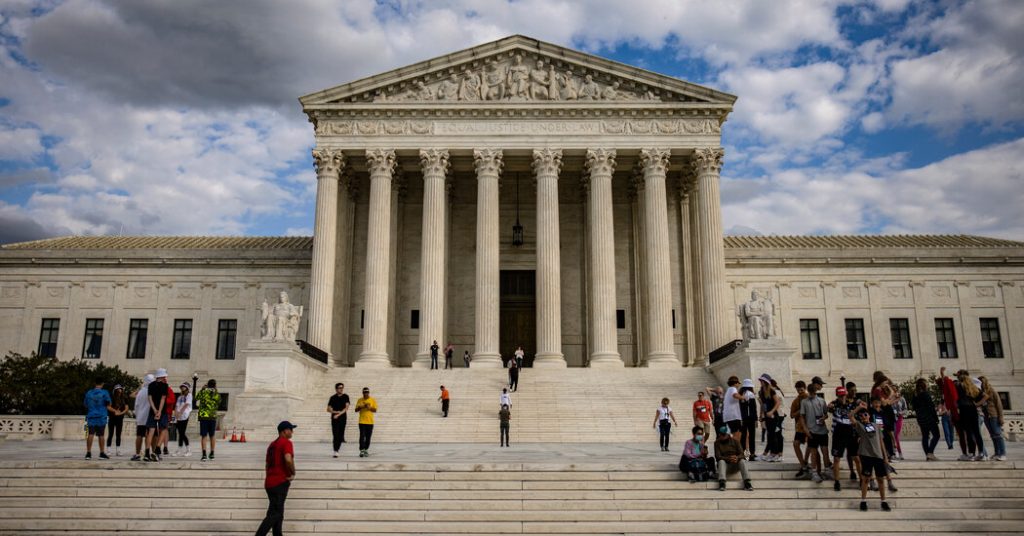
“Where, as here, a state enacts a blatantly unconstitutional statute, assigns enforcement authority to everyone in the world and weaponizes the state judiciary to obstruct those courts’ ability to protect constitutional rights,” the brief said, “the federal courts must be available to provide relief.”
The cases, Whole Woman’s Health v. Jackson, No. 21-463, and United States v. Texas, No. 21-588, are focused on the novel structure of the Texas law, which was devised to avoid review in federal court.
In December, the justices will hear arguments in a separate case, Dobbs v. Jackson Women’s Health Organization, No. 19-1392, which takes on a Mississippi law that bans abortions after 15 weeks. That case is a direct challenge to the constitutional right to abortion established by Roe v. Wade in 1973.
The Texas law, which has been in effect since Sept. 1, makes no exceptions for pregnancies resulting from incest or rape, bars state officials from enforcing it and instead deputizes private individuals to sue anyone who performs the procedure or “aids and abets” it.
Understand the Texas Abortion Law
The patient may not be sued, but doctors, staff members at clinics, counselors, and people who help pay for the procedure or drive patients to it are all potential defendants. Plaintiffs do not need to live in Texas, have any connection to the abortion or show any injury from it, and they are entitled to at least $10,000 and their legal fees if they win. Defendants who win their cases are not entitled to legal fees.
The Supreme Court refused to block the law on Sept. 1 in a bitterly divided 5-to-4 ruling.
Jonathan F. Mitchell, a lawyer who helped draft the law and who represents individuals who say they want to preserve their right to sue under it, also filed a brief, writing that the federal government was not entitled to challenge the law.
“The constitutionality of the statute must be determined in the lawsuits between private parties,” he wrote, “not in a pre-emptive lawsuit brought against the sovereign government, which is not ‘enforcing’ the statute but merely allowing its courts to hear lawsuits arising under the disputed statutory enactment.”
You may also like
-
Utah GOP nominates Lyman for governor's race, but incumbent Cox still seen as primary favorite
-
Republican introduces bill to ban waiving foreign flags on House floor
-
FEC fines ex-congressman $43,475 for campaign finance violations
-
Biden's aides flank him to Marine One to block cameras from catching him shuffling
-
17 states challenge federal rules entitling workers to accommodations for abortion

